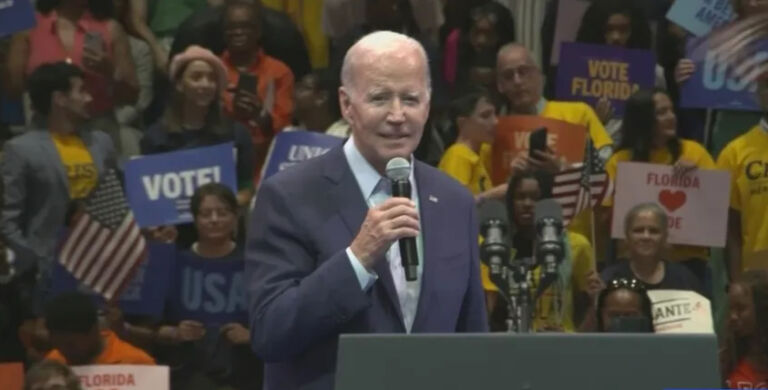Since President Trump was elected, Democratic state attorneys general have filed an unprecedented number of showy—but ultimately frivolous—legal challenges to his executive orders. Josh Stein hasn’t initiated any of those challenges himself, but he’s been happy to add his name and his authority as the attorney general of North Carolina to legal challenges initiated by others. (See, for example, here.)
The most recent instance of Stein jumping on the “Resist Trump” bandwagon occurred last week when he and 16 other state attorneys general joined a lawsuit filed by California’s attorney general, Zavier Becerra that challenges Trump’s decision to stop certain subsidy payments under the Affordable Care Act. In the News and Observer, Stein announced that:
I am suing President Trump today for his unlawful and reckless decision to stop payments that help hundreds of thousands of North Carolinians afford health insurance.
This statement gets things so willfully backward that I can only think it must be an example of what psychologists call “projection.” The controversy that underlies the state AGs’ lawsuit is certainly the result of recklessness and unlawful conduct, but not by President Trump. It was the Democrats in Congress who were reckless when, in 2010, they brushed aside the concerns of their Republican colleagues and their constituents and used procedural trickery to pass a half-baked and incoherent version of the Affordable Care Act (ACA). And it was President Obama who broke the law when, in 2014, he ignored Congress’s refusal to appropriate funds for “cost-sharing reduction” payments under the ACA, and started making those payments anyway.
The focus of the current controversy is Section 1402 of the ACA. Section 1402 requires medical insurance providers to reduce deductibles, coinsurance, copayments, and similar charges for certain low and middle-income plan holders and authorizes the HHS Secretary to make “cost-savings reduction” (CSR) payments to those insurers to reimburse them for the cost of the reductions. Section 1402 does not, however, appropriate funds for making these payments, and neither does any other section of the ACA. That wouldn’t necessarily have been a problem. Lots of laws authorize expenditures without appropriating the funds to pay for them, and, when that happens, Congress usually simply provides for the necessary funding as part of the annual appropriation process. It was a problem in this instance, however. Thanks to their reckless handling of the ACA, the Democrats lost control of the House of Representatives in 2011, and the Republicans who replaced them refused to make the necessary appropriation when the Obama administration asked for it.
At that point, Obama did what he always did in such situations. Acting on his own and without congressional authorization, he instructed the secretaries of Health and Human Resources (HHS) and the Treasury to make the payments anyway. The Obama administration defended the payments by arguing that an appropriation of funds in a different part of the ACA, Section 1401, should be interpreted to imply that funds had also been appropriated for Section 1402.
The House sued, complaining that, “paying … public funds to certain insurance companies to implement a program … for which no funds have been appropriated … plainly is unconstitutional as it violates Article I of the Constitution; it also violates statutory law.”
When the case reached the bench of U.S. District Court Judge Rosemary M. Collyer, she agreed. On May 12, 2016, she granted summary judgment in favor of the House, and in a forceful and well-reasoned opinion, she explained why:
This case involves two sections of the Affordable Care Act: 1401 and 1402. Section 1401 provides tax credits to make insurance premiums more affordable, while Section 1402 reduces deductibles, co-pays, and other means of “cost sharing” by insurers. Section 1401 was funded by adding it to a preexisting list of permanently-appropriated tax credits and refunds. Section 1402 was not added to that list. The question is whether Section 1402 can nonetheless be funded through the same, permanent appropriation. It cannot.
If the statutory language is plain, we must enforce it according to its terms. Although the meaning—or ambiguity—of certain words or phrases may only become evident when placed in context, the statutory provisions in this case are clear in isolation and in context. The Affordable Care Act unambiguously appropriates money for Section 1401 premium tax credits but not for Section 1402 reimbursements to insurers. Such an appropriation cannot be inferred. None of Secretaries’ extra-textual arguments—whether based on economics, “unintended” results, or legislative history—is persuasive. The Court will enter judgment in favor of the House of Representatives and enjoin the use of unappropriated monies to fund reimbursements due to insurers under Section 1402.
The opinion goes on to demolish each of the Obama administration’s “extra-textual” arguments in turn, before concluding:
The Court will grant summary judgment to the House of Representatives and enter judgment in its favor. The Court will also enjoin any further reimbursements under Section 1402 until a valid appropriation is in place. However, the Court will stay its injunction pending any appeal by the parties.
Judge Collyer stayed the injunction to avoid disrupting the medical insurance marketplace during the appeal process. For the same reason, the parties placed the appeal process on hold, pending some action by Congress to “repeal and replace” the ACA, or at least do something to fix its most egregious faults. And, again for the same reason, both the Obama and the Trump administrations continued to make CSR payments to insurers.
Eventually, however, almost a year and a half after Judge Collyer made her determination that the payments violate both the U.S. Constitution and federal law, the Trump administration decided that enough is enough. The current HHS and Treasury secretaries asked Attorney General Jeff Sessions for a formal opinion “as to whether [a] permanent appropriation is available … is available to fund the cost-sharing reduction (CSR) payments authorized by section 1402 of the Affordable Care Act,” and he responded with a letter in which he stated (on the basis of a legal analysis very similar to Judge Collyer’s) that, “It is my opinion that … the law … does not appropriate funds for the Affordable Care Act’s Cost-Sharing Reduction program.” Upon receipt of that letter, the Acting Secretary of Health and Human Services informed the Centers for Medicare and Medicaid Services that, “CSR payments to insurers must stop, effective immediately. CSR payments are prohibited unless and until a valid appropriation exists.”
This decision didn’t come out of the blue. For months, President Trump had been using the threat of stopping the CSR payments to try to get Congress to clean up the mess it made when it passed the ACA. The state AGs were, therefore, prepared when he finally carried out his threat, and they responded immediately with the lawsuit that Josh Stein was boasting about last week. In it, they ask the U.S. District Court for the Northern District of California to declare that a valid appropriation already exists, and they also ask the court to compel the Secretaries of the Department of Health and Human Services and the Treasury to “make the required cost-sharing reduction payments … immediately, and on a periodic and timely basis going forward.” They don’t, however, address Judge Collyer’s holding or Attorney General Sessions’ opinion in the complaint. Presumably, they’ll come up with some sort of argument if and when the case moves forward, but they’re going to be hard-pressed to find a line of reasoning that hasn’t already been thoroughly rebutted.
When I wrote last spring about a previous case in which state AGs were challenging one of Trump’s executive orders and Josh Stein was jumping onto the bandwagon, I said:
One can see why … an opportunity to display their own virtue and express their solidarity with the “Resist Trump” movement might appeal to Josh Stein and the other state attorneys general, but surely they have better things to do with their own time and their taxpayers’ money!
I feel the same way now. Ever since the Affordable Care Act was passed, its supporters have relied on dubious executive orders and even more dubious judicial interpretations to keep the thing from collapsing under the weight of its many errors and omissions. It’s time for that to stop. Instead of attempting for force the Trump administration to go on making payments that—according to a federal judge and the Attorney General—are illegal under both the U.S. Constitution and federal law, Josh Stein and the rest of the state AGs ought to be lobbying Congress to fix the mess it created in 2010 when it foisted the Affordable Care Act on an unwilling country.


